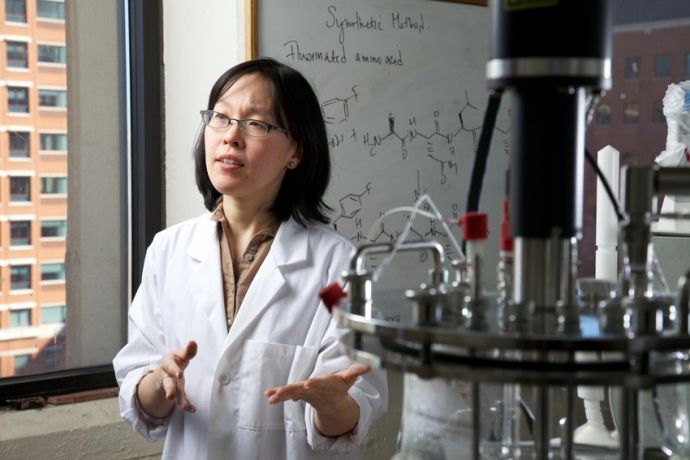Lighting up a blunt or sipping a glass of wine can result in ingesting a pesticide listed under one of the most hazardous classes of chemicals being used in the agricultural sector, according to the World Health Organization.
A recent startup — based at NYU’s Tandon School of Engineering and using research from one of its professors — is commercializing a protein meant to detoxify these harmful pesticides which are most commonly found in weed, wine and tea.
The protein breaks down the pesticides known as organophosphates, or OPs, found in the products. Funded partially by a two-year, $250,000 National Science Foundation grant, Brooklyn Bioscience is now figuring out the most efficient application process for the technology they developed for each respective industry.
“We have the proof of concept down,” Tandon graduate student and co-founder of Brooklyn Bioscience Andrew Olsen said. “The next thing we’re working on is the best way to implement it.”
The work Brooklyn Bioscience did uses water, along with the protein, to break down this harmful pesticide in cannabis, tea and wine. According to a press release “engineered PTE provides a low-cost, efficient and environmentally friendly solution for breaking down dangerous OPs into relatively benign products that can be more easily removed with water.”
The protein would be better used in some industries than others, according to Olsen. The breakdown of the pesticide is “a luxury for wine, but a need for cannabis and tea.” This project is especially important in cannabis because OPs are more toxic when inhaled than when ingested by mouth. Though little data has been collected about organophosphates in cannabis, the pesticide is not meant to be ingested and is known to be harmful, making a detoxifying process desirable to address health concerns. Inhalation of the pesticide could lead to flu-like illnesses and respiratory problems.
With weed now legalized in 12 states and more on the way — it was on New York Governor Andrew Cuomo’s to-do list for his first 100 days of his most recent term, although the state has been unable to pass legislation since — the company’s development has implications for government-regulated cannabis markets.
While the group feels confident in their scientific research done using university labs, they’re working on how to develop and market their work to make it appealing and easy for customers to use.
Jin Kim Montclare, a Professor in the Department of Chemical and Biomolecular Engineering, is the faculty behind Brooklyn Bioscience.
Montclare’s professional work has focused on this field since she began working at NYU in July 2005, but it wasn’t until April 2017 that Brooklyn Bioscience was formed, and the impact that this might have on the cannabis industry became clear.
“I had students interested in bringing this idea to the next level and I had the means to help them. It’s been mostly them,” Montclare said. “I credit their independent ability to do this, to go beyond the academic setting and try to see if there’s a way to commercialize it.”
Tandon Dean Jelena Kovačević said the company is an example of successful problem-solving the school hopes to promote.
“Brooklyn Bioscience and its powerful process for pesticide remediation reflects our drive to educate students to be career-ready global citizens, who, if solutions to real-world problems don’t exist today, are ready to create them,” Kovačević said. “It is just one of many exciting ventures that speak to our focus on imbuing students with an entrepreneurial spirit and the will to help create a better world.”
A version of this article appeared in the Tuesday, Sept. 3, 2019 print edition. Email Brooke LaMantia at [email protected].

























































































































































